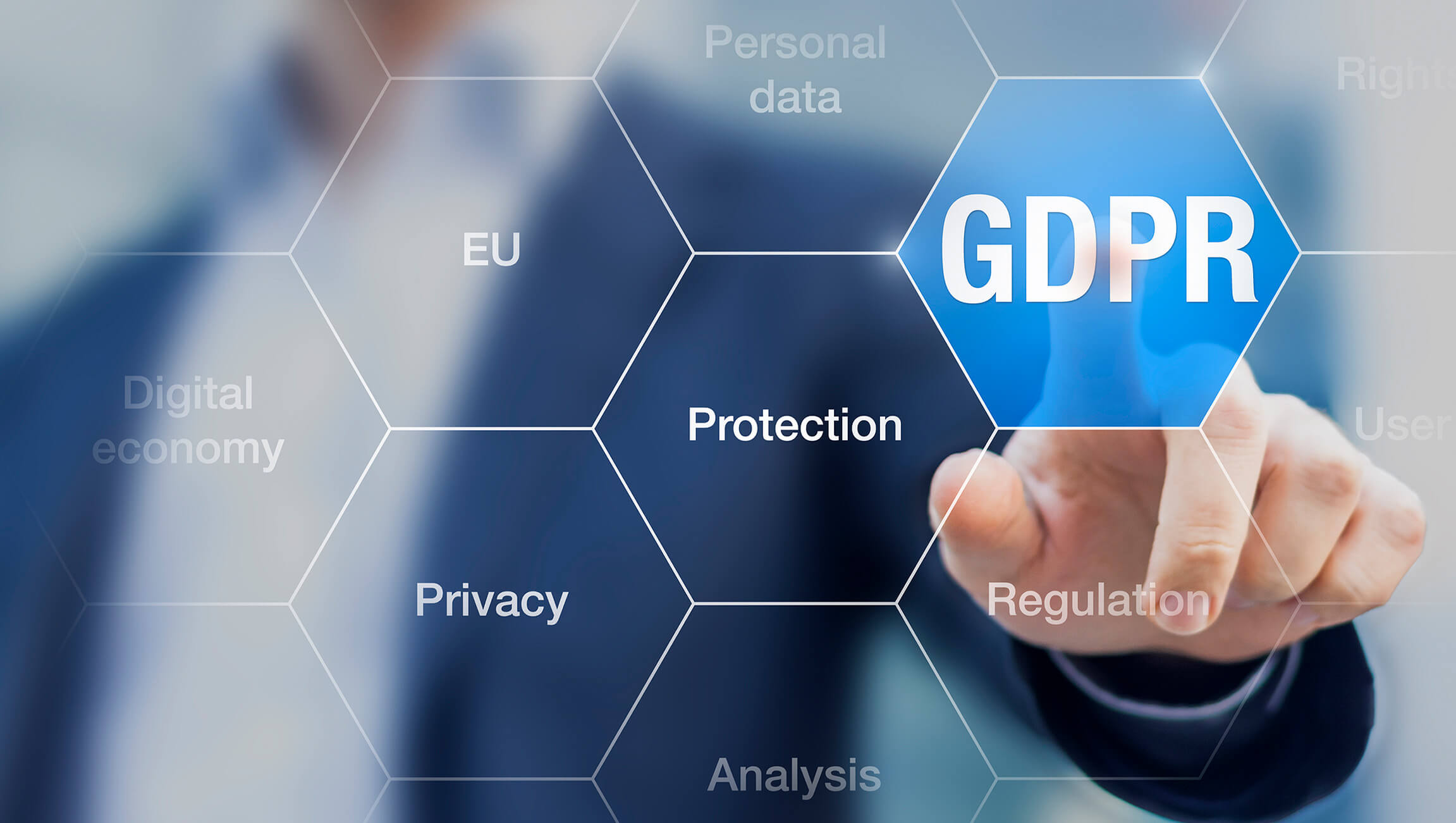Why GDPR is Important?
The EU's General Data Protection Regulation (GDPR) has had far-reaching consequences in the few years it has been in place. It acted as a model for other jurisdictions' privacy protection legislation, and recent high-profile cases have proved that authorities are prepared to enforce the GDPR to defend European individuals' data rights.
In its most basic form, the GDPR is a European data protection law that offers individuals more control over their personal data. It's forced businesses to rethink data privacy, emphasising the importance of "Privacy by Design and Default".
What is GDPR?
It's critical to understand the GDPR and how it's being implemented if you manage a company that collects personal data. GDPR stands for General Data Protection Regulation, and its implementation marked a watershed moment in the new era of big data privacy protection. The GDPR established a unified data protection legislative framework for all EU member states.
Individual data subjects' rights — people whose information is collected by corporations — are given top priority.
The GDPR supersedes the EU's 1995 Data Protection Directive (DPD). When the DPD was enacted, the data landscape was vastly different – years before cellphones and internet marketing were ubiquitous. It had been implemented separately by EU and EEA member states, with some variation between jurisdictions.
In contrast, the GDPR had a direct impact on EU member states. It was written in April 2016 and went into effect in May 2018, and its terminology is more in line with current data collection procedures.
Any situation involving personal data necessitates a full understanding of the rules. Begin by performing a data-flow analysis for your company or the area or problem in question. To get started, call our GDPR lawyers, for Legal Help , who have extensive experience with data-flow analyses of all sizes.
Importance of GDPR?
The new legislation has two objectives. The EU aims to offer consumers more choice over how their personal data is used in the first place. This is due to the activities of firms like Facebook and Google, who frequently exchange user data for access to their services.
The existing Data Protection Act was enacted prior to the internet, making it simple to exploit data using modern technology. GDPR aims to remedy this issue. The EU seeks to boost trust in the digital economy by improving data protection legislation and enacting harsher enforcement measures.
Second, the EU wishes to provide businesses with a more predictable legal environment in which to operate. It is estimated that keeping data protection regulation uniform across the single market will save firms €2.3 billion annually.
The expert international GDPR lawyers at Infinity Legal Solutions, Legal Advice Amsterdam are ready to help with personal data compliance across a wide range of legal disciplines and borders.
GDPR Compliance Services in Amsterdam offers guidance to both public and private entities, based on a strong professional experience and a pragmatic approach to dealing with data protection challenges.
To whom does it apply?
GDPR requires 'controllers' and 'processors' of data to obey EU regulations. Let's take a closer look at those terms.
A data controller is the person or entity in charge of deciding how and why data is processed. This is usually your own company. A processer is the person who is in charge of actually processing the data.
A good example of this is using a third-party contractor to process your payroll. Your company informs the payroll company when payments are due, how much each employee should be paid, and who is leaving or joining. The payroll business manages the IT system and keeps track of your employees' information. In this case, your company serves as the controller, while the payroll provider serves as the processor.
Even if controllers and processors are based outside the EU, GDPR nevertheless applies if they handle data belonging to EU citizens.
As a controller, it's your job to make sure the processor follows the regulations. Processors must maintain track of their processing activities in the meanwhile. There's a strong financial incentive to do so. The penalties under GDPR are even more severe than they were previously.
Infinity Legal Solutions, assists its clients in complying with the GDPR in all aspects. GDPR Compliance services assistance extends from comprehensive GDPR compliance initiatives, in which we assess our customers' complete data processing operations and advise on the actions and paperwork that must be put in place to allow for such processing, to responding to ad hoc data protection inquiries (such as advising on the legality of a proposed data transfer to an overseas regulator).
What Does GDPR Mean for the future
Consumers trust organisations that don't ask for too much personal data and respond fast to data breaches, according to a report released in April 2020. Customers are clearly wanting more extensive security of their personal information after years of data privacy disasters.
With the GDPR leading the push to govern data flow, those that prioritise data protection now will define the future of privacy. Businesses place a high value on data, but they are increasingly being pressured to protect the source of that data and ensure that their privacy is respected – or suffer the repercussions.
It's critical for your company to get the right information on the General Data Protection Regulation (GDPR) and the Data Protection Act 2018. Our data protection lawyers provide ideal legal advice Amsterdam to start ups, mid sized businesses or large companies.
Why is GDPR more important in 2022?
GDPR. These four letters, in calmer days, were enough to send shivers down the spines of every enterprise. Today, over four years after its introduction, such concerns seem insignificant in comparison to COVID-19's disruption and damage.
However, the simple line is that GDPR compliance is a continuous process, not a one-time event, and that failing to comply with its mandatory regulations may result in irreversible reputational harm and fines of up to 4% of your annual global turnover.
So, why is compliance more critical today than it has ever been? In a nutshell, data is the answer. Data is now flowing across every organisation and is becoming more and more important to success.
That same data, if not managed in a secure and compliant manner, has the potential to be the destruction of any firm, regardless of its size or shape.
Legal Help Amsterdam, is a law firm in the Netherlands based in Amsterdam offering a wide range of legal, compliance and regulatory matters related services to start ups, mid sized businesses or large companies.



Wonderful Post. This is a very helpful post. These are the useful tips for. I would like to share with my friends. To know more about me visit here Criminal Defense Attorneys Florida
ReplyDelete